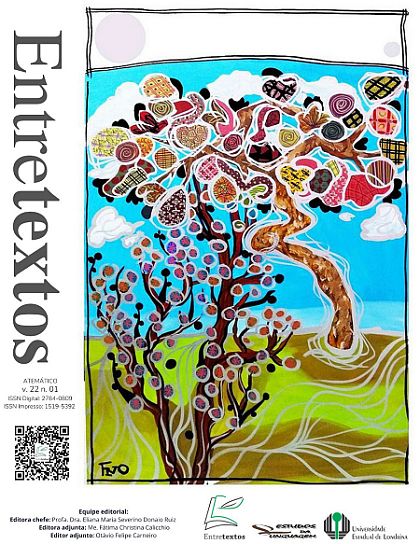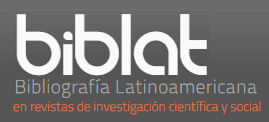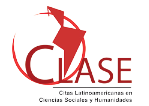The effects of meaning apprehended in graffiti: ideological and socio-historical crossings
DOI:
https://doi.org/10.5433/1519-5392.2022v22n1p40Keywords:
Speech effects. Advertisement. Graffiti. Ideological formations.Abstract
This work is based on the theoretical perspective of French-line Discourse Analysis, which allows us to study the phenomena of language from the linguistic materiality and also the relationship that language establishes with history and ideology, as it configures itself. As a study tool, through the concepts of Discursive Formation, Ideological Formation and Conditions of Production, and addresses the theme of urban discourse, specifically graffiti, selected from the internet. The main objective of this paper is is to study the discursive functioning in the production of meanings, in order to verify how the possible effects of meanings are materialized in/through language. With this work, we understand the sociocultural dimensions and the production of meaning through the discourse present in the graffiti, identifying the ideological crossings that permeate thems, reflecting on the extralinguistic aspects and the multiple possibilities of meaning effects related to ideological formations.
Downloads
References
CHARAUDEAU, P.; MAINGUENEAU, D. Dicionário da análise do discurso. 2. ed. São Paulo: Editora Contexto, 2014.
CHAUI, M. O que é ideologia. São Paulo: Editora Brasiliense, 1980.
GUIMARÃES, E. Texto, discurso e ensino. São Paulo: Editora Contexto, 2013.
LUCIANO, D. Só os peixes mortos vão a favor da corrente. 1 fotografia. Disponível em: http://www.imgrum.org/media/1249615761543673911_1818970653. Acesso em: 4 maio 2017.
MUROS brancos povo mudo. [2017]. 1 fotografia Pinterest. Disponível em: https://br.pinterest.com/pin/267893877806652612/. Acesso em: 4 maio 2017.
ORLANDI, E. P. Discurso em Análise: Sujeito, Sentido, Ideologia. Campinas, SP, Pontes, 2012
ORLANDI, E. P. Análise de discurso: princípios e procedimentos. 8. ed. Campinas: Pontes, 2015.
ORLANDI, E. P. Cidade dos sentidos. Campinas: Pontes, 2004.
ORLANDI, E. P. Discurso em análise: sujeito, sentido, ideologia. Campinas: Pontes, 2016.
PÊCHEUX, M.; FUCHS, C. A propósito da análise automática do discurso: atualização e perspectivas (1975). Tradução de Péricles Cunha. In:
GADET, F.; HAK, T. Por uma análise automática do discurso: uma introdução à obra de Michel Pêcheux. 2 ed. São Paulo: Ed da UNICAMP, 1993. p. 163 – 252.
SPINELLI, L. Pichação e comunicação: um código sem regra. Logos, Rio de Janeiro, ano 14, n. 26, p. 111-121, 2007. Disponível em: http://www.logos.uerj.br/PDFS/26/08lucianospen.pdf. Acesso em: 23 mar. 2017.
ZAN, D.; BATISTA, E.; CAMPOS, M. T. A.; RAGGI, N.; ALMEIDA, T. L. Grafite e pichação: formas de resistência e participação juvenis?. Revista Educação, Santa Maria, v. 35, n. 3, p. 465-478, set./dez. 2010. Disponível em: https://periodicos.ufsm.br/reveducacao/article/view/2356/1423. Acesso em: 19 abr. 2017.
Downloads
Published
How to Cite
Issue
Section
License
Entretextos adota a Licença Creative Commons Attribution 4.0 International, portanto, os direitos autorais relativos aos artigos publicados são do(s) autor (es).
Sob essa licença é possível: Compartilhar - copiar e redistribuir o material em qualquer suporte ou formato. Adaptar - remixar, transformar, e criar a partir do material, atribuindo o devido crédito e prover um link para a licença e indicar se mudanças foram feitas.




















